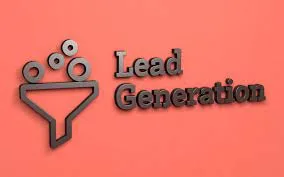
In the contractor industry, lead generation is not just a key aspect of business growth; it’s a fundamental necessity for survival. With an understanding of its importance, contractors can develop strategies that drive consistent leads, ensuring a steady flow of work and sustainable business success. This comprehensive guide delves into the significance of lead generation in the contractor industry and offers insights into effective strategies for maximizing its impact.
The Foundation of Business Growth
Firstly, lead generation serves as the foundation of business growth for contractors. Without a continuous influx of leads, contractors risk facing periods of stagnation or decline. Leads represent potential clients who have expressed interest in the services offered by a contractor. Consequently, by nurturing these leads and converting them into paying customers, contractors can secure new projects and revenue streams, enabling them to expand their businesses and thrive in a competitive market.
Driving Revenue and Profitability
Secondly, one of the primary reasons why lead generation is essential for contractors is its direct impact on revenue and profitability. Leads represent opportunities for contractors to secure new projects and generate income. Therefore, by effectively converting leads into paying customers, contractors can increase their revenue streams and enhance their profitability. In a competitive industry where margins can be tight, a steady flow of leads is critical for sustaining and growing a profitable business.
Fostering Business Stability
Thirdly, lead generation plays a crucial role in fostering business stability for contractors. By consistently generating leads, contractors can maintain a stable pipeline of work, reducing the risk associated with periods of downtime or low demand. As a result, a steady flow of leads ensures that contractors have ongoing projects to work on, enabling them to keep their teams engaged and productive. Additionally, a stable business pipeline provides contractors with greater financial predictability, allowing them to plan and allocate resources more effectively.
Expanding Market Reach
Next, effective lead generation enables contractors to expand their market reach and tap into new opportunities for growth. By targeting specific demographics, geographic regions, or market segments, contractors can attract leads from diverse sources and broaden their customer base. Consequently, this expansion not only increases the contractor’s visibility and brand awareness but also creates opportunities for long-term business growth and sustainability.
Enhancing Brand Awareness and Reputation
Moreover, lead generation efforts can significantly enhance a contractor’s brand awareness and reputation within the industry. By consistently engaging with potential clients and delivering high-quality services, contractors can build a positive reputation for reliability, professionalism, and expertise. Positive word-of-mouth referrals and customer testimonials resulting from successful lead generation efforts can further solidify a contractor’s reputation, attracting more leads and opportunities in the process.
Effective Lead Generation Strategies for Contractors
To capitalize on the importance of lead generation in the contractor industry, contractors must employ effective strategies tailored to their target market and business objectives. Some proven lead generation strategies for contractors include:
- Local SEO Optimization: Optimizing website content and local listings to improve visibility in search engine results for relevant keywords and geographic areas.
- Content Marketing: Creating informative and engaging content, such as blog posts, articles, and videos, to attract and educate potential clients.
- Social Media Marketing: Leveraging social media platforms to showcase projects, engage with followers, and attract leads through targeted advertising and content promotion.
- Networking and Referrals: Building relationships with industry peers, suppliers, and past clients to generate referrals and word-of-mouth leads.
- Email Marketing: Nurturing leads and staying in touch with potential clients through targeted email campaigns and newsletters.
- Offering Free Resources or Consultations: Providing valuable resources or free consultations to demonstrate expertise and attract leads.
- Online Reviews and Testimonials: Encouraging satisfied clients to leave positive reviews and testimonials online to build trust and credibility with potential leads.
Conclusion
In conclusion, in the contractor industry, lead generation is a critical component of business success. By understanding the importance of lead generation and implementing effective strategies, contractors can drive revenue, foster business stability, expand their market reach, and enhance their brand reputation. By consistently generating and converting leads, contractors can build thriving businesses that are well-positioned for long-term growth and success in a competitive market landscape.














